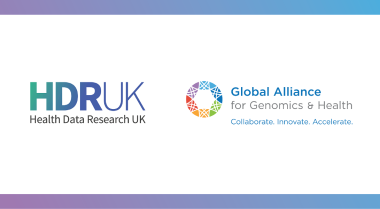New AI tool may offer insights into patients’ future health
21 March 2024 | Author: Debs Mathisen, Research Communications Manager
Researchers have developed and tested a new AI tool called Foresight which recognises complex patterns in health data to gain insights and offer predictions of the future health of patients.
AI models like Foresight hold great potential to improve healthcare systems by supporting clinical decision-making, as well as real-world risk forecasting, emulating trials and clinical research or education.
Belonging to the same family of AI models as ChatGPT, Foresight uses a deep learning approach to recognise complex patterns in both the structured and unstructured data of electronic health records to produce insights and predictions. While ChatGPT uses publicly available information which has not been medically verified, Foresight is trained on information from NHS electronic health records (EHRs).
Supported by Health Data Research UK (HDR UK), researchers at King’s College London, UCL, King’s College Hospital NHS Foundation Trust and Guy’s and St Thomas’ NHS Foundation Trust investigated the accuracy of Foresight’s medical predictions by comparing them to real-life events as described in patients’ records.
The researchers trained three different models of Foresight using data from over 811,000 patients across King’s College Hospital NHS Foundation Trust, South London and Maudsley NHS Foundation Trust and MIMIC-III (a publicly available dataset of patients from Beth Israel Deaconess Medical Center in the US). The de-identified data was approved under NHS governance processes with input from patients, and the research was completed inside the hospital NHS firewall to ensure data security.
Researchers extracted and processed the unstructured, or free-text, and structured data within ECRs using CogStack – a tool that processes the free-text information into a format that researchers can use more easily, developed with support from HDR UK.
Published in The Lancet Digital Health, the study found that when forecasting the next diagnosis of a condition in a patient’s health record, Foresight achieved a precision rate of 68% and 76% in the two datasets from UK NHS Trusts and 88% in the US MIMIC-III dataset.
When forecasting the next new biomedical ‘concept’, which could be a disorder, symptom, relapse or medication, the precision achieved by Foresight was 80%, 81% and 91% respectively.
Zeljko Kraljevic, Research Fellow in Health Informatics, Biostatistics & Health Informatics at King’s College London Institute of Psychiatry, Psychology & Neuroscience (IoPPN), developed Foresight and is first author on the journal paper. He said: “Our study shows that Foresight can achieve high levels of precision in predicting health trajectories of patients, demonstrating it could be a valuable tool to aid decision-making and inform clinical research.
“The proposed purpose of Foresight is not to enable patients to self-diagnose or predict their future, but it could potentially be used as an aid by clinicians to make sure a diagnosis is not missed, or for continual patient monitoring for real-time risk prediction. One of the main advantages of Foresight that it can easily scale to more patients, hospitals or disorders with minimal or no modifications, and the more data it receives, the better it gets.”
The accuracy of Foresight’s predictions was also assessed by clinicians. Five clinicians developed 34 mock patient timelines with simulated scenarios. When all five clinicians agreed on the forecasted medical event, the predictions Foresight provided were 93% relevant, meaning they made sense from a clinical perspective.
Professor Andrew Morris, Director of HDR UK, said: “AI has immense potential to enable scientific discovery, support the prevention, diagnosis and treatment of disease, and improve care pathway management and education. This work demonstrates the potential that using electronic health records and the latest advancements in AI could deliver for improving clinical decision making. But this is all dependent on the quality and representativeness of data. Sustained investment in the UK’s data infrastructure is needed to enable this in safe and secure ways to maintain privacy and anonymity of people’s health data.
“HDR UK aims to accelerate trustworthy data use. This study illustrates that the free-text portion of electronic health records, which are currently underutilised in research, hold vital information for understanding health outcomes.”
This paper was part of a programme of work that received funding from the NHS AI Lab, National Institute of Health and Care Research and Health Data Research UK. It has infrastructure support from King’s College Hospital NHS Foundation Trust, NIHR Maudsley BRC and the London AI Centre for Value-Based Healthcare.



